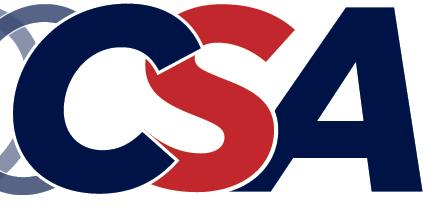 Hard on the heels of the FMCSA’s two-day symposium on the CSA program, the ATA has called for an immediate review of the crash accountability system that is currently in place. The ATA has repeatedly pointed out that the inclusion of accidents where the company driver was clearly not at fault unfairly skews the carrier’s CSA scores and “paints an inappropriate picture for shippers and others that these companies are somehow unsafe.”
Hard on the heels of the FMCSA’s two-day symposium on the CSA program, the ATA has called for an immediate review of the crash accountability system that is currently in place. The ATA has repeatedly pointed out that the inclusion of accidents where the company driver was clearly not at fault unfairly skews the carrier’s CSA scores and “paints an inappropriate picture for shippers and others that these companies are somehow unsafe.”
The ATA used several examples of crashes where the truck drivers were clearly not at fault to illustrate their point. These examples included a high speed police chase where the suspect crossed over the grassy median and went head-on into a truck, a suspected drunk driver who rear-ended a tanker, and an incident where another man fleeing from authorities ran into the side of a fuel tanker which caused a large fire and power outages in the area.
According to the ATA, crashes like these where the driver could not have prevented the accident should not be counted toward a company’s CSA scores, yet there is no distinction between these accidents and ones where the driver is at fault. An inebriated truck driver could run his vehicle into the side of a building and it would count for the same as if a careless car side-swiped a truck when falling asleep at the wheel.
During the symposium last week, the FMCSA’s Motor Carrier Safety Advisory Committee listened to a crash reconstructionist who told them that one of the reasons for the lack of distinction is that in some cases, it is impossible to determine who’s fault a crash is.
“This may be the case with some crashes,” countered ATA President & CEO Bill Graves, “but not when a drunk driver rear ends a gasoline tanker or the driver of a stolen car crosses a grassy median and strikes a truck head on.”
“FMCSA has been evaluating this issue for years and is not due to complete additional research until this summer,” Graves said. “We don’t need more research to conclude that it is inappropriate to use crashes like these to paint the involved trucking companies and professional drivers as unsafe.”
While the FMCSA is conducting more studies to see what should be done about this issue, the ATA has proposed a stop-gap that would allow certain crashes not to count against a company when it is “plainly evident” that the driver is not at fault.
Next Story: Don’t Blame The Trucker
Source: fleetowner










The reason it has taken over a year to study this is that the FMCSA needs to justify it’s existence and cushy jobs.
Total bull. A four wheeler rear-ends a truck and it goes against their score? What a crock!